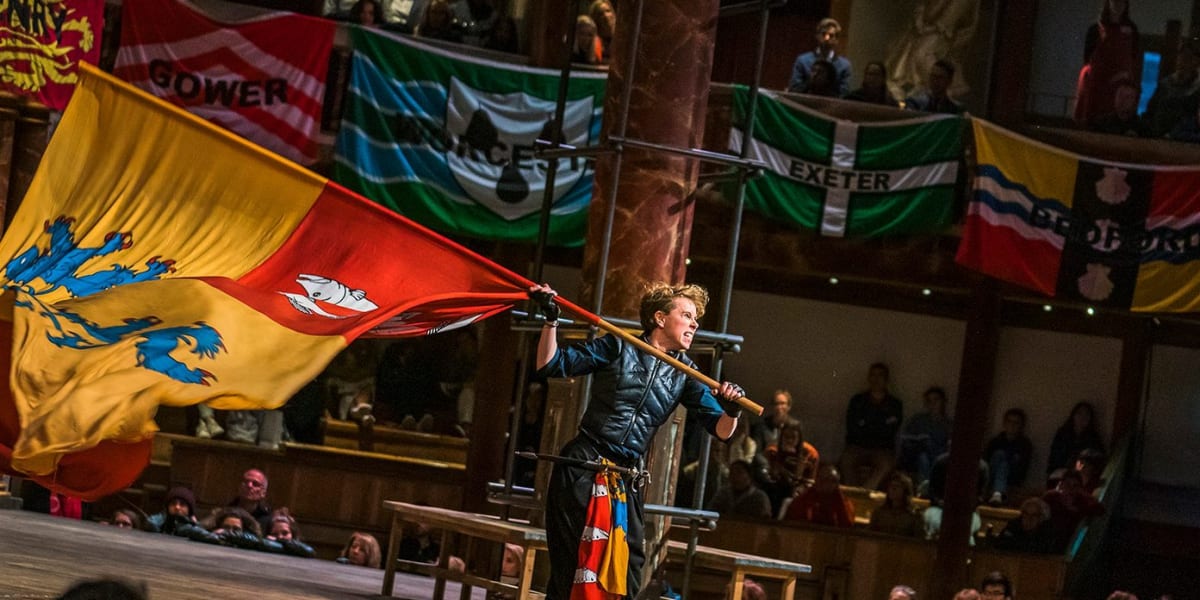In the programme notes, Artistic Director Michelle Terry, and the dual directors Sarah Bedi and Federay Holmes, place great emphasis on what they regard the ‘unique process’ they have created at The Globe; their aim is to overturn the ‘director-orientated, commercial model’ of theatre and give all ‘creatives’ an ‘equality of agency’. It is a process where ‘everyone has ownership over all the choices that have been made’. Unfortunately, if Henry IV Part One is anything to go by, the result is a directionless mishmash of uneven, unconnected and unconvincing performances that are little more than a parody of Shakespeare’s play. This might be forgiven if the result was more amusing – but I cannot remember a less engaging, less convincing, or less amusing Falstaff than Helen Schlesinger. It was also unclear what Michelle Terry was trying to convey, spending much of her time marching around the stage, bellowing, waving, and gurning, as the honour-seeking Hotspur.
This is a pity because their choice to give many of the traditionally male roles given to women (Hotspur, Falstaff, Prince Hal, and Douglas, amongst others) offered opportunities. Do female characters throw new light on the way we see the clash between medieval concepts of honour (embodied by Hotspur) and the more practical Machiavellian principles of leadership (embodied by Prince Hal)? How would a female Falstaff relate to her immediate group and to Hal? But these renditions of the characters seemed to fall into an indistinct no-person’s land, which made it difficult (if not impossible) to draw any meaningful connotations from the choices they had made.
That is not to say that there are not some positives. Philp Arditti is a strong and engaging Henry IV, who manages to turn in a convincing performance despite the lack of direction, and the distractions of inappropriate audience laughter that often punctuate Globe performances. Jonathan Broadbent is also excellent as Mistress Quickly who speaks with a lilting Northern Irish brogue and conveys palpable anger at Falstaff’s iniquitous behaviour towards her. But because there was no obvious concept, this was an opportunity missed. For whilst overly concept-driven theatre can reduce actors to cyphers (and many productions have suffered from this in recent years), what Terry, Bedi and Holmes have done here is to abdicate responsibility. Ultimately, theatre is not a playground for actors; at least not if you want people to pay to watch it.

